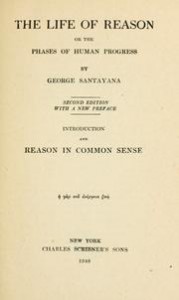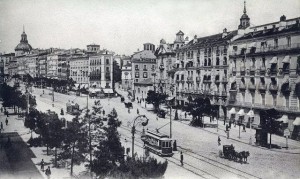 To Victor Francis Calverton
To Victor Francis Calverton
C/o Brown Shipley & Co 123, Pall Mall, London. S.W.1.
Rome. November 18, 1934
It surprises me a little that you should seem so well pleased with my comments on your “Passing of the Gods”. I thought I had made some rather sharp criticisms of it, but let that be, since all seems to be well. I have now read your other book, which I really like better; but since you take criticism so kindly, I will try to be as disagreeable as possible, and only tell you what I don’t like about it. This is all the easier, because in the note on p. 36 you point out the contradiction between your Chauvinism-and-Anglophobia and your Cosmopolitan Communism. You say it is temporary, like the Dictatorship of the Proletariat, to be outgrown when there are no classes and no nations. Now I happen to be, by force of personal circumstances, much more a cosmopolite than you; and it seems to me that you don’t see this Colonial-Complex, as you call it, from a sufficient distance, or impartially. There are two distinct things: Anglomania, which a very few rich Americans share with a great many Europeans of various nations, and is expressed in foot-ball, afternoon-tea, boy-scouts, and masculine clothes for women. That is a fashion which you may laugh at, but which is harmless and reasonable, as fashions go. A second, entirely different thing is the heritage (not a “complex” but the smoothest possible habit of the soul) of the English language, literature, and home. This, as you show, was middle-class, but fed from above, in people who had known Latin and even French, and were cultivated people. Naturally, when they spoke or wrote, they did so in their own way, the English way. Far from showing any prejudice against the New world, they tried pathetically to glorify it; but every day their own talent grew thinner and ghostlier, and the subject-matter which American life offered them–when not treated (as it is now-a-days) satirically–was woefully poor and uninspiring. They were morally stifled and starved. In the 1890’s, or thereabouts, I knew half a dozen young Harvard poets, Moody being the most successful of them with the public: every one of them was simply killed, snuffed out, by the environment. They hadn’t enough stamina to stand up to their country and describe it, as a poet could. It was not that they imitated the English–they were ferocious Anglophobes–but that, being educated men, they couldn’t pitch their voices or find their inspiration in that strident society. I daresay now that incapacity is overcome. I have read Babbit, and mean to read something of Dos Passos. But even now, even in Emerson & Wm James, the chief interest is that they are Americans and might throw light on the American state of mind. All the world feels that America is a great phenomenon; they want to understand it. But, apart from that symptomatic or descriptive interest, nobody would read any American books. They are still poverty-stricken and bloodless; or if violent or morbid, like Moby Dick or Poe, it is rather in a psychopathic than in an artistic way that they are interesting. What you call the Colonial-complex, then, seems to me to have been simply universal intelligence, . . . natural sensibility, and good taste surviving in America: and it is a stronger gust of this same wind, which had rather died down in an intolerantly “petty Bourgeois” society, that now makes American writers freer. And they write, you yourself write, very much better English, than was written in the U.S. fifty years ago.
From The Letters of George Santayana: Book Five, 1933-1936. Cambridge, MA: The MIT Press, 2003.
Location of manuscript: The New York Public Library, New York City NY
 To Charles Scribner’s Sons
To Charles Scribner’s Sons



